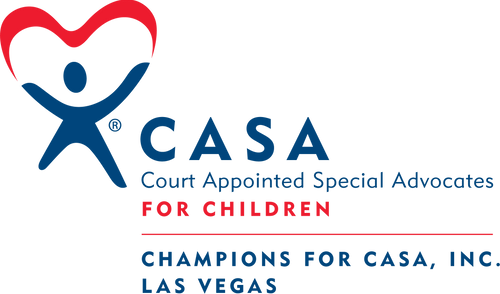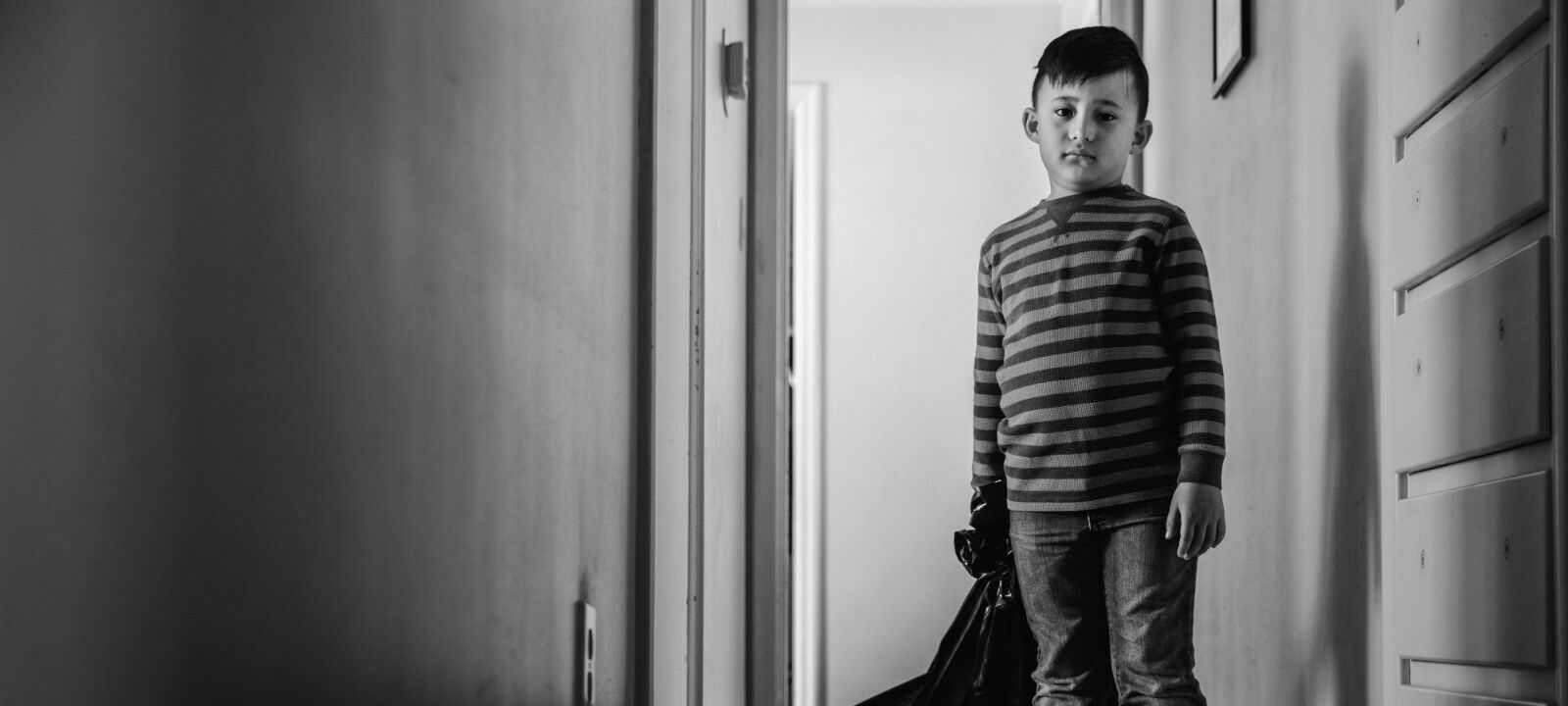Learn more about what the CASA program is about and what it takes to be a CASA volunteer by reading the answers to some frequently asked questions.
What is CASA?
Court Appointed Special Advocates are community members just like you who ensure each neglected and abused child’s needs remain a priority in an over-burdened child welfare system while working to find safe, permanent homes for these most vulnerable children. Our Advocates get to know the children, their caregivers, and the facts of the case. The children already may have been removed from the home and placed in foster care, or they may be at risk of entering foster care. They take part in such processes as child and family visits, court hearings, and meetings about the children’s needs. Advocates express their concerns and explore all of the options for permanent homes.
Who are CASA Advocates?
Ordinary people who care about the well-being of kids. CASA Advocates come from all backgrounds. Many work full-time. Some are students, working parents, or retired people. Flexibility, rather than employment status, is the critical factor. Most CASA Advocates work on a single case at a time. No legal expertise is required.
How do children benefit from having a CASA?
Decisions are made every day which affect the lives of children involved in Family Court cases. CASA Advocates help these decisions to be made more promptly and with greater information and sensitivity to the child’s individual needs. CASA Advocates work for better outcomes, and provide children living out of their home with the knowledge that there is a community around them who cares.
What does a CASA volunteer do?
CASA volunteers are appointed by judges to advocate for children’s best interests. They stay with each case until it is closed and the child is in a safe, permanent home. We serve children from birth through the age defined by state statute as the limit to youth remaining in care.
Volunteers work with legal and child welfare professionals, educators, and service providers to ensure that judges have all the information they need to make the most well-informed decisions for each child. Our best-interest advocacy is driven by the guiding principle that children grow and develop best with their family of origin, if that can be safely achieved.
Children in foster care that have a CASA volunteer are more likely to achieve permanency, less likely to re-enter the system, more likely to achieve academically and behaviorally in school, and more likely to feel increased levels of HOPE.
To learn more, complete our interest form and we will be in touch.
Are CASA Advocates trained, supervised, and supported?
Yes, each local Nevada program has a 33-hour pre-service training program a mix of in-class training, self-study, and court observation prior to case assignment. All volunteers are matched with an Advocate Supervisor who is a member of the CASA staff. Advocate Supervisors provide individual guidance, support, and accompaniment to the Advocate.
Are CASA Advocates important in the child welfare process?
Definitely. CASA could not serve the children of Nevada without its many dedicated volunteer advocates. Courts all over the country depend on their local CASA to help inform the child welfare process. Judges implement the CASA program in their jurisdictions and appoint CASA to cases. CASA has been endorsed by the American Bar Association, National Council of Juvenile and Family Court Judges, Office of Juvenile Justice and Delinquency, and the Department of Justice.
NRS 432.B 500 legislation provides statutory and legislative recognition of CASA, a volunteer based program that provides substantive advocacy for abused and neglected children in Nevada family courts.
Is there a 'typical' CASA Advocate and are there special qualifications?
Advocates come from a variety of professional, educational, and ethnic backgrounds. Over half are employed full-time. Advocates must be 21 or older, undergo a background check and a personal interview, complete the training curriculum, and agree to abide by the policies and guidelines of the local CASA program they are volunteering with. Advocates must be patient, open-minded people who have good communication skills, a history of following through on commitments, and a willingness to accept guidance. Above all, they must care about children.
Do CASA Advocates wield authority in child welfare cases?
CASA Advocates are assigned by the dependency court judge in the case, but they do not have authority to decide outcomes. Rather, they rely on their communication skills, their informed reports, and the respect of the courts to inform outcomes.
How much time does it take to be a CASA?
Each advocate, each child, and each case is different. The amount of time devoted to a case depends on the specific needs of the case and the amount of time the advocate has available. Advocates devote an average of ten hours per month to each case. Some of this time can be spent on evenings or weekends, but there are court hearings, phone calls, and meetings during working hours as well. Local program staff we will work with you to find an assignment that suits your availability.
Can I include my family in my volunteer work?
Only trained CASA Advocates are able to work with the children we serve. Children in family court cases are assured a degree of confidentiality, and the friends and family of Advocates are not allowed to meet them or to know their identity. Only advocates who have been fully screened, trained and taken an oath of confidentiality may have contact with CASA children. You can check with the state office and/or local programs to see what other volunteer opportunities there are that do not involve casework available.
Do CASA Advocates work alone?
Most of the time CASA Advocates work by themselves. However, the staff supports and will directly assist volunteers upon request. For example, a volunteer may request that a staff person accompany him/her to a meeting or court hearing.
What are some of the challenges of being an Advocate?
Being a CASA is both rewarding and challenging. The child welfare system is bureaucratic and overburdened, and our Advocates often have to work hard to get the system to respond. Because of court decisions, social service plans, and other factors out of our control, the advocate can face disappointments. The biggest reward comes on the day when the child is placed in a safe, permanent home, and knowing they made a difference in a child’s life.
What do I have to do to become a CASA?
To take the first step towards becoming an Advocate, complete our interest form.
What are other ways to support the efforts of Champions for CASA if you can’t become a CASA volunteer?
If you can’t become a CASA volunteer, you can still make a huge impact in the lives of children in foster care. You can support the efforts of Champions for CASA, a separate 501c(3) non-profit organization, whose mission is to promote and support the work of the CASA Las Vegas program through the recruitment, training, recognition and retention of CASA Las Vegas volunteers. Below are some ways that you could have an impact:
- Extend invitations: Invite Champions for CASA to join your personal and business networks for a presentation to learn more and share about CASA’s mission.
- Consider in-kind donations: Encourage your company or organization to provide event tickets/items/gift cards that can be used to recognize and support CASA volunteers. These donations allow opportunities for volunteers and their CASA children to enjoy fun activities, such as dining out or attending sporting events.
- Provide a financial contribution: Support Champions for CASA’s marketing initiatives and support the recruitment, recognition and retention events for CASA volunteers.
- Engage on social media: Stay connected to Champions for CASA by following and actively sharing our social media accounts.
To express your interest in supporting the CASA cause, complete our interest form or contact us.
If I were to donate funds, how is my money used?
At Champions for CASA, we prioritize the long-term sustainability of our organization and ensuring responsible use of financial donations. Financial contributions play a vital role in supporting our recruitment and retention initiatives such as events, marketing, and CASA volunteer resources. Detailed insights into these efforts can be explored on the About page of our website.
For those interested in directly supporting a specific event or resource, we encourage reaching out to us to coordinate.
All monetary donations are tax-deductible, and our IRS Determination Letter can be accessed in the Financials tab of this page. Although we haven't yet filed our first IRS Form 990 since our establishment in 2022, we are committed to transparency and accountability. Once available, the Form 990 will also be accessible in the same section, ensuring complete visibility into our financial activities.
What is your organization's privacy policy?
Our organization takes our privacy policy seriously and takes steps to protect and ensure the safety of our supporters. We do not sell or otherwise disclose information about our volunteers or supporters outside of our immediate organization. This policy has no exceptions. We do not sell or exchange your information with any other organizations, public, private or nonprofit. For more detail, please visit our Privacy Policy page.




